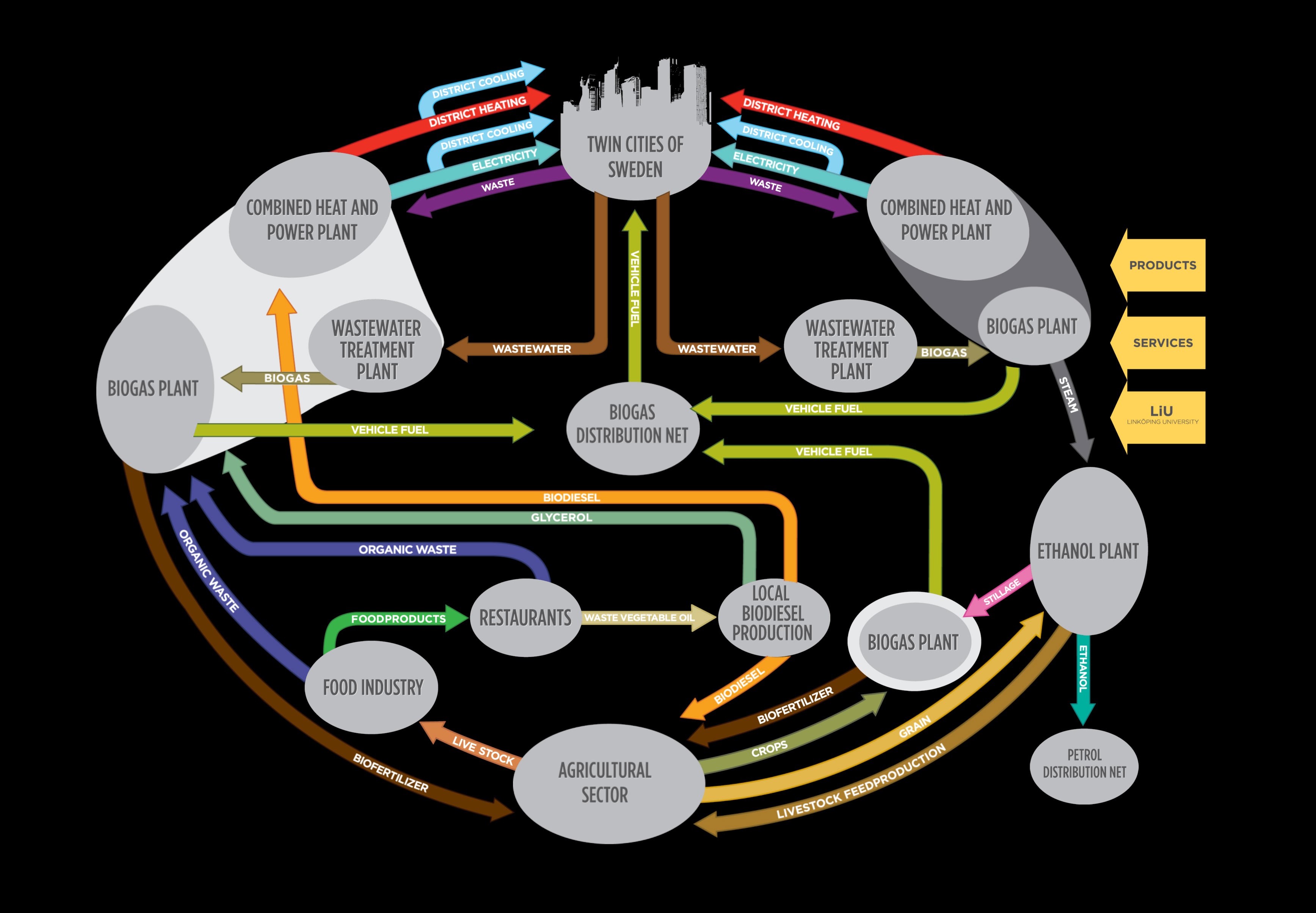Norrköping is a coastal municipality in southeast Sweden that is home to the Händelö Industrial Symbiosis Network. The network involves cooperation between a range of public and private sector actors who have been working to reduce Norrköping’s carbon footprint since the early 1990s. Symbiotic activities are largely focused on the use of commercial and household waste and other industrial side streams for energy production.
Strong partnerships developed over time
Norrköping’s industrial symbiosis story begins with E.ON’s combined heat and power plant, established in 1982. The plant has environmental benefits in itself, as by meeting domestic and industrial demand for heat and steam, it eliminates the need for individual boilers. Several upgrades have increased the environmental benefits even further, enabling the plant to operate on biomass (early 1990s) and domestic and industrial waste (2002, 2010). This not only reduces the carbon footprint of energy production but also provides an important means of utilising waste that may otherwise become landfill. Other partners in symbiotic activities include Argoethanol, which produces grain-based bio-ethanol with high environmental performance; Svensk Biogas, which produces fuels used for transportation; Econova, which produces a range of goods from recycled materials; and Norrköping municipality.
Spotlight on: Urban industrial symbiosis
A port city known originally for its textiles industries, Norrköping continues to host important logistics services and industries working with agriculture and forestry products. Historical and current links between industry and the city make Norrköping an ideal place to consider the idea of urban industrial symbiosis. Urban industrial symbiosis is a concept that links industrial ecology with sustainable urban development. It considers, for example, establishment of zero waste companies in new living areas and possibilities to exchange resources between residential and industrial areas. It also explores the opportunities that industrial symbiosis can provide for innovation and in the form of spin-off projects that contribute to societal well-being in urban regions. Urban industrial symbiosis is a relatively unexplored concept, but has received some attention from researchers at Linköping University through the “Sustainable Norrköping” project.

Economic, environmental, and political motivators
Several enabling factors are present in the Händelö case. First, the municipality has played a strong driving role in symbiotic activities. It established the district heating system, developed the combined heating and power plant, and strongly supports the use of biofuels across the municipality. Second, environmental regulations from both the EU and the Swedish Government have necessitated creative solutions to both waste management and energy production. Third, private sector actors have been motivated by the many economic benefits of cooperation. These include tangible benefits such as cheaper means of waste disposal and tax incentives for reduced CO2 emissions, but also intangible benefits such as a “greener” company profile. Economic benefits may not always be clearly evident from the outset, but can instead emerge through cooperation between partners. For example, E.ON offset the higher operational cost of a CHP plant running on waste-derived energy through a “gate fee” that is still considerably lower than other waste disposal options.
Regional dimension
Industrial symbiosis activities have had a substantial effect on the region as a whole. Most notable is the decision of Agroethanol, a company owned by the Swedish Agriculture Cooperative which produces grain-based bio-ethanol, to locate in Norrköping. Access to low CO2 steam from E.ON is thought to have been a key factor in this decision, and the partnership has in turn been instrumental in creating further synergies. Symbiotic exchanges also support and promote existing eco-friendly business activity. One such example is Econova, a company that specialises in producing useable products from industrial and domestic waste.
Learn more…